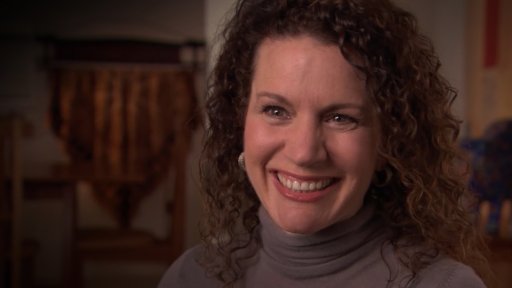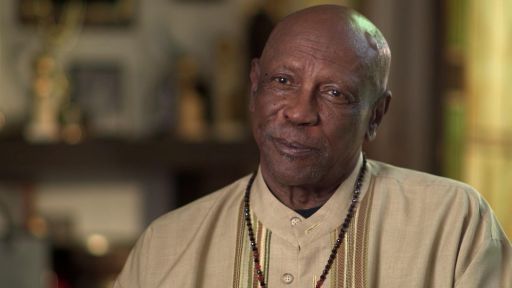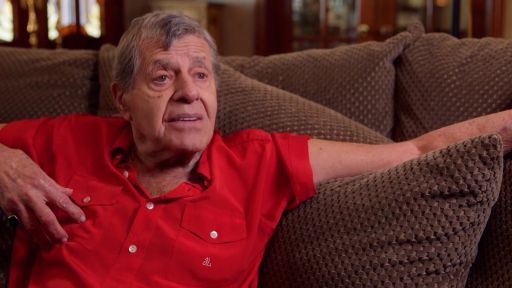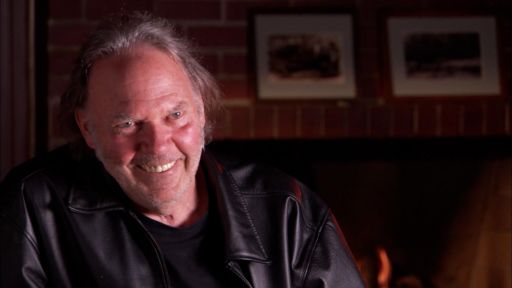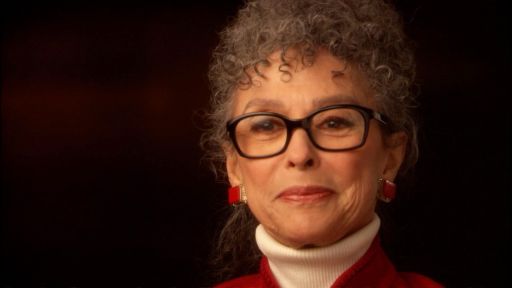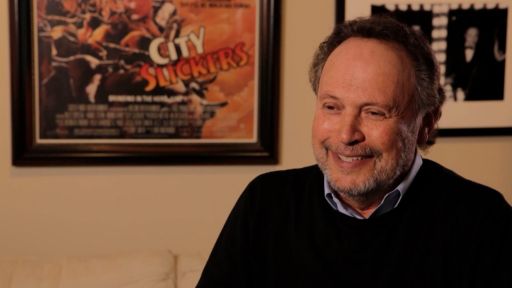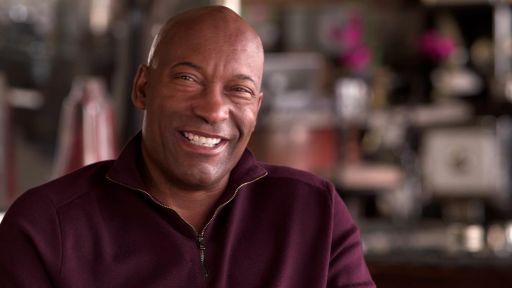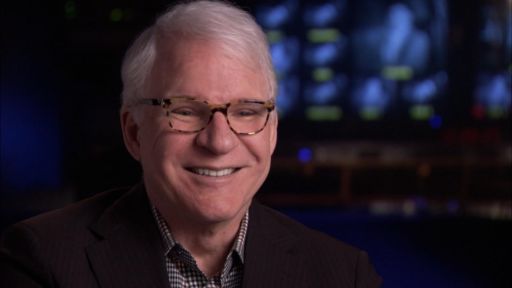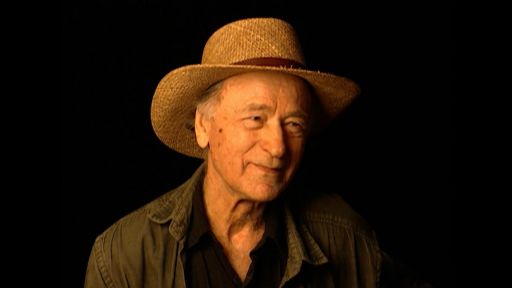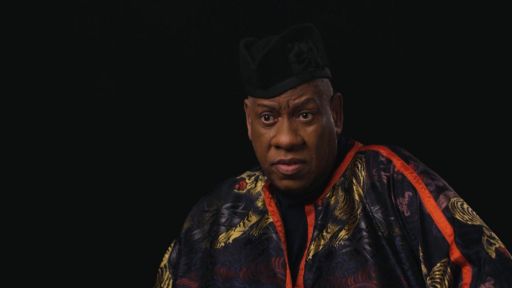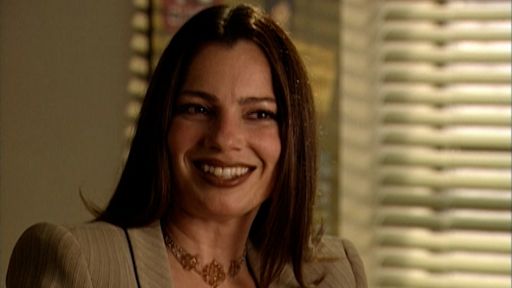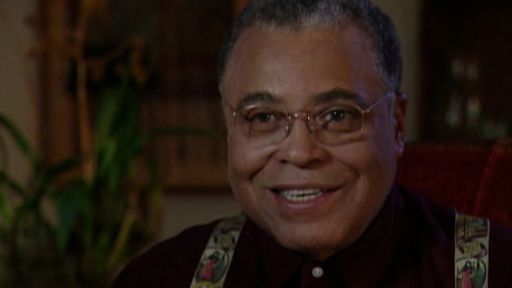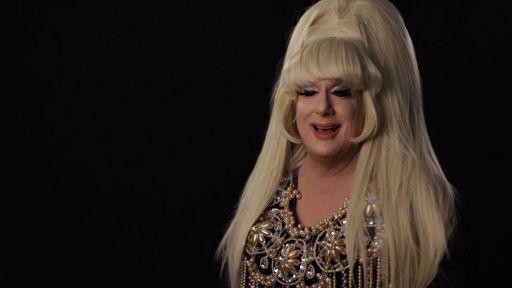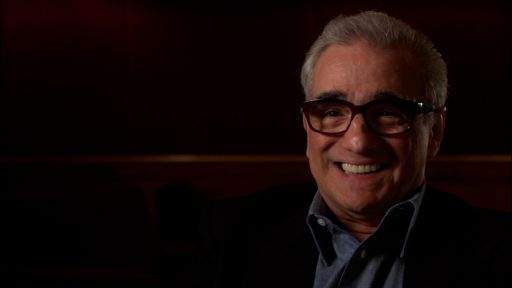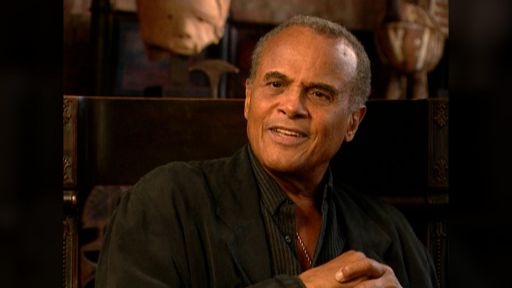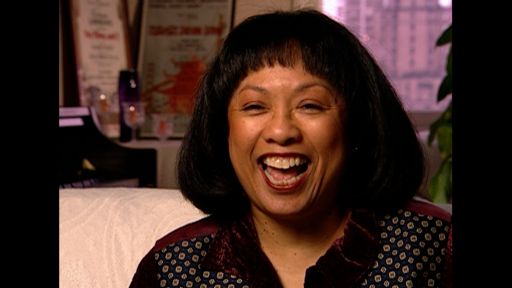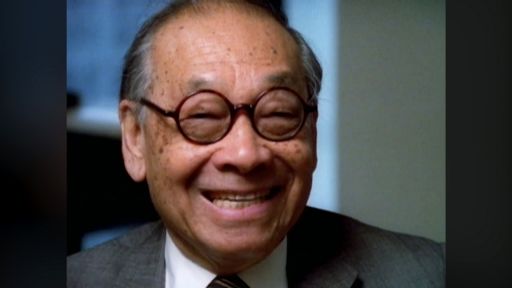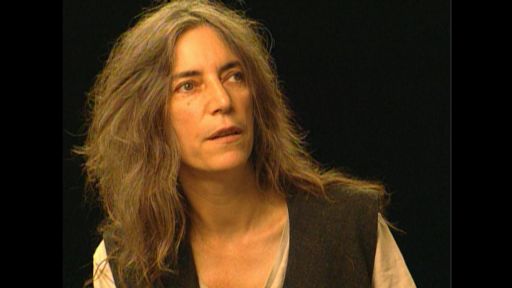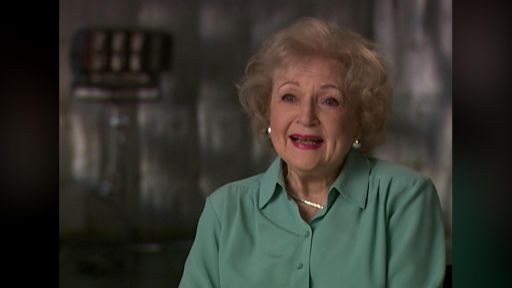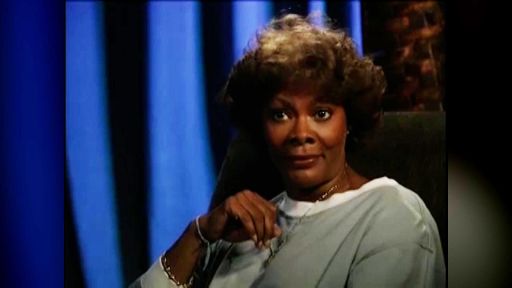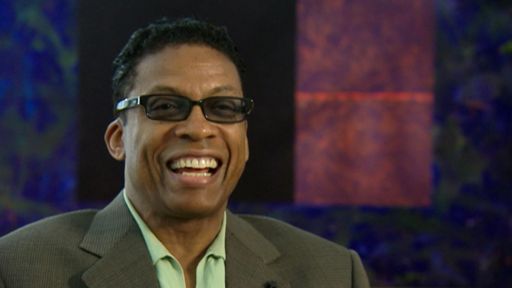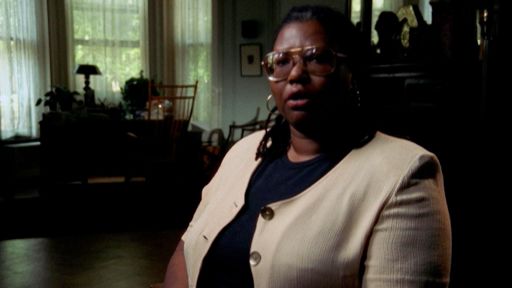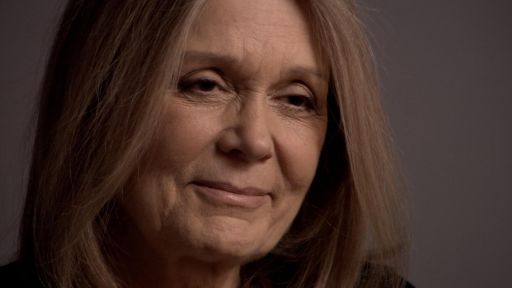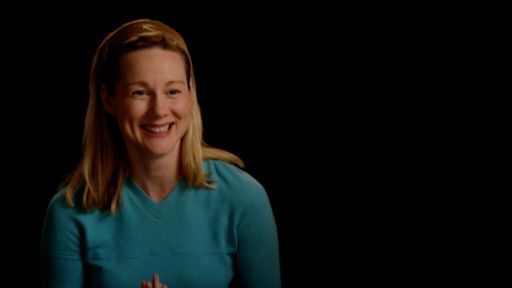TRANSCRIPT
- Well, I came to America, I got married in '83, then I immediately got pregnant, and James Brooks said he wanted to do a show with me.
And then he said, 'While you are pregnant, 'go to the Museum of Television, 'and watch American shows, 'and get a grounding in an American comedy.'
So, I used to go, very pregnant, with a cup of coffee and sit at the American Museum.
And I used to watch 'Your Show of Shows,' and all sorts of things.
So, and I just kept imagining that room, and it was so American to me.
I mean, Mel is intrinsically American to me, and that Jewish humor, I mean, imagine that room with Woody Allen and Larry Gebhardt, and Carl Reiner and Neil Simon and Mel Brooks, and Mel trying to get their attention.
It must have been just amazing.
And they were a whole different generation of American writers.
They were educated men.
They went through the Second World War.
It's a different mindset.
They're very worldly men as compared to the next generation on that.
I don't know, their reference of comedy, a lot of the times is Brady Bunch or something, and they had great language.
They were really well read.
I still, I call them the sexy seniors.
Whenever I get asked to, you know, go along to these benefits and talk about Carl Reiner and Mel, and they're just still the funniest guys to me, they're funnier than any younger people.
Their brains are incredible.
So, I did see a lot of these shows that they'd written on in the fifties and sixties, and Imogene Coca and Sid Caesar on 'Your Show of Shows,' and it was just fabulous sketch comedy to me because it really came from the heart.
And it was really about playing the reality of a situation.
It wasn't just a glib, sexual innuendo.
It meant something.
And I'm rambling now, as I tend to do.
- [Interviewer] How do you compare him as a director, Mel, versus other directors you've worked with?
- I just adore him.
He's just a wonderful, funny presence.
I mean, he's like... basic things are funny to me.
Toupées, funny. Mel Brooks, funny.
He was on the Fox lot when I started doing my show in the eighties and I was on Stage 17.
I don't know, he had his offices.
He was always in the commissary.
He was always working the Shirley Temple Room, you'd be having lunch.
And then Mel Brooks had been walking up and down, ordering a cobb salad and he'd come up, he'd go, 'How you doing?'
And he'd come and talk to you at your table, and just have everyone in fits and then he'd finish and he'd go, 'Nice working your table.'
And then he'd walk off to another table.
It was just heaven, you had Mel Brooks in the commissary, and he would start wandering in to look at what I was doing on my show.
And I was like this girl that no one had heard of on network that didn't exist.
And I was with this group of very intense, wonderful writers, but they were always unhappy.
They were the unhappy Jews a lot of the time.
'Oh, it's not funny, I don't know.'
You know, I had a lot of those kind of people, and I was always like, Pollyanna going, 'We'll make it work.
'It's going to be funny.'
And then one day he came and he said, 'I'll be in a sketch with you.'
And everyone, well it was just fantastic.
Mel Brooks is gonna be in a sketch on my show.
And it was the happiest week of the whole show.
I mean, I did hundreds of them in the end, you know, and he died.
And the week Mel was on the show, everybody was happy.
All the people that always had the 'Oh, my stomach.'
And they were like, 'Oh, Mel's on the show!'
And it was just, we did this sort of strange sketch where I think I impersonated Kathleen Turner.
I haven't seen it since we shot it.
I just remember going, 'It's so hot' the whole time.
And then Mel was there saying, 'Begging!'
and 'I'm not bitter.
'They don't finance bitter.'
Adlibbing, I always say that line.
That's my favorite Hollywood line, 'Don't be bitter. They don't finance bitter.'
And everyone was happy that week on the show because Mel Brooks was on the show.
And that was the greatest week.
Imagine his energy then. Now, it's overwhelming.
- [Interviewer] He said that he had to, he said before there were joggers in New York, he would have to go running through the streets, and puke between parked cars.
Cause he had so much anxiety and energy that he had to, he couldn't release it all.
- It's this New York Jewish thing.
I have a friend, she met me through the plane when I first came to New York.
She's like this, you wanna eat Vietnamese, you wanna eat Thai, you wanna eat Chinese?
You know, what do you wanna do?
You know, I can get you anything.
This is New York.
You want a white Jewish baby?
I can get you a white Jewish baby for $65,000.
Personally, I'd rather have a car.
Now, what we gonna do?
We're gonna go meet my parents in Baldwin.
They're gonna say welcome to Baldwin.
I remember getting to New York, and I'd met Jewish people in London, they're different.
They got off the boat too early.
And this girl was like, whoa!
And it was like Mel Brooks and everyone was so funny.
And it was a whole different world to me, you know?
And her energy is 'Sports, my parents gave me a lot of sports.' And it's that thing.
She had it too.
- [Interviewer] He actually wrote really good roles for women who at the time were just sidekicks to the men or arm candy.
And those women, not only were they allowed to be physically, whatever they wanted to be, but he wrote, and he said, we're not, yeah, if I was gonna write a part for them, I was gonna let them go and do it.
The seventies, not great for women in comedy, except for him really.
- Yeah, I mean Madeline Kahn did some extraordinary stuff with him.
And of course his wife, Anne, I think he loved working with her, and maybe I've still got something to do with Mel.
I did my lovely sketch with him on the show that made everyone happy.
And I did my little witchy thing, but he just wants everyone to feel comfortable, and to be as funny as they can be.
And, the times I, you know, as I say, there is nothing, there's no angst with working with him.
It's just about being as funny, and as having positive energy.
And there's so many people that make the whole 'being funny' business miserable, and he doesn't seem to be, he's never been that tortured, it comes from an agony inside, kind of person.
His friendship with Carl Reiner is just wonderful to watch.
And Carl just adores Mel making him laugh.
And if you listen to the '2000 Year Old Man' stuff, it's just him prodding him saying, make me laugh, do it, do that funny thing.
I just loved the way Mel will turn something really dramatic, like the death of Joan of Arc being burned at the stake, into something so mundane.
'Were you there when Joan of Arc died?'
'Oh, that was terrible.'
It's that belittling of historical moment just makes me die.
'Oh, that was bad.'
'Were you there when Jesus was there?'
'Yeah, the 12 guys used to come in all the time 'asking for water,' just making it every day.
- [Interviewer] Well, which leads me to my other point, is that when you think of him and his contemporaries, he's not concerned with the kids, the marriage, the job, he's not concerned with the every day of life.
He goes to the literature, historical, which not a lot of his contemporaries were really doing.
Plus, and then he adds a surreal bent to it, right?
- Yeah, yeah.
He's always taken on really big issues, the history of the world, and to have the guts to take on the Nazis like that, the ultimate revenge, and for it to be so funny.
I mean, I remember, everyone remembers first seeing 'The Producers' and just ugh, reveling in it.
And Gene Wilder, the sheer joy of that bittersweet revenge.
Yeah, huge.
I mean, taking off, a lot of parodies were happening though, with the 'Space Balls' and the 'Robin Hood' and the 'Dracula' and 'Blazing Saddles,' it was always that sort of parodies of things.
And then, but him in the middle, the every man being the Jewish guy that just normalizes everything.
Oh, you know, it's like.
- [Interviewer] When were you first aware of him?
When did you first discover him?
- I remember seeing 'Blazing Saddles,' and I don't like fart jokes, I'm English.
And I'm a girl, I thought it was disgusting, but I just, and he's just adorable.
He would come to England a lot, Mel, and do talk shows in England with Michael Parkinson, and just be the best thing on the whole season, because he broke down all the class barriers.
I was still in England, you get Edith Evans, or somebody posh, you get someone, and he was just like, he didn't care what people, he was just, there was no class barriers for him.
And he was just wonderfully funny.
People in England adored him, and he loves England, and a great Anglophile, him and Anne, I would go and see them at the Connell Hotel in London.
And they'd go, 'Come in!'
'We wanna be the Jewish parents you never had.'
And they'd sit me down.
They did this, they really like just completely mothered and fathered me one day.
I was very happy.
So I was very aware of him coming to England, and he was like Muhammad Ali, would come and do talk shows.
And then Mel Brooks, he was just the favorite, because English people adored him.
He's funny, he's funny, he's funny.
- [Interviewer] 'Robin Hood.'
Did he allow you to design your own makeup?
- I think Barry Burman did the makeup.
I remember, I think the L.A. Times said about my makeup in 'Robin Hood' is that she's gone through hours of makeup, she looks kind of exactly the same.
It was like, thanks a lot.
It was odd.
I mean, I'm still like, it was very strange my little twinkly eyes and it was torture.
It was like being buried alive.
- [Interviewer] I can say this because I've worked with her, I thought you kind of would base it on a little, it looked like based a little on Phyllis Diller.
- I had no idea.
Yeah, the hair was kind of Phyllis Diller-y, and it was silly.
Just all this makeup, I just, you know.
- [Interviewer] But you came, you weren't-- - Why would I not wanna play that part though, and do a cameo when you're called Latrine?
What a credit for me.
- [Interviewer] Did he allow you to improvise?
- Yeah, yeah, I think he wanted me to, 'cause he saw that that's what I liked to do.
And I think, I don't think I added much to it.
I said like, 'I touched it.'
I said something like that.
He went, 'I like that.'
'That's good, that's good.'
I love Mel also for accepting me for being a Brit, as well.
Just, you know, maybe 'cause he's such an Anglophile, and that somebody so intrinsically American to me, and so funny, and so global, really got what I did and respected what I do, and has encouraged me and always been kind to me all my career here, as has Carl Reiner.
I love that they find me funny, and they love women.
He likes women a lot, and there's a real difference between directors and men in the business that like women and get women and are comfortable with women being funny.
'Cause there's a hell of a lot of men that aren't, or pretend that they think women are funny, but they're threatened by women, and Mel Brooks loves women.
- [Interviewer] That's great.

